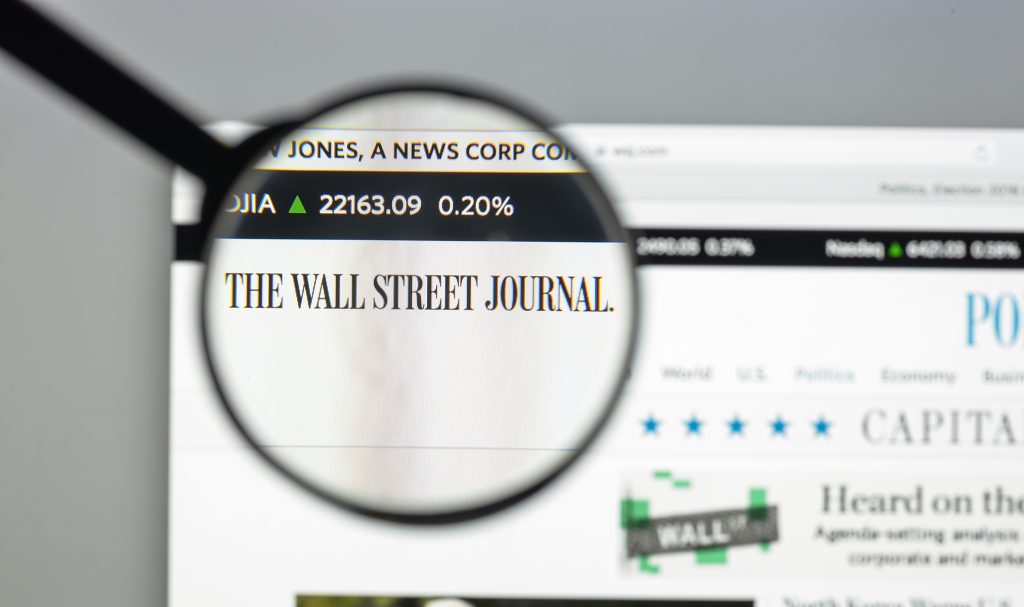In the second half of the 19th century, Singer Sewing Machine Company co-founder Edward Cabot Clark used some of the proceeds from his fortune to purchase several blocks of land above 72nd Street in Manhattan. What a steal, readers are no doubt thinking. But at the time of his purchase, it’s worth pointing out that the land was farmland.
This is why markets are markets. Differing views, and the views differ because the future is generally unknowable. No doubt the person or persons who sold to Cabot Clark felt they were getting the better end of the deal, and maybe they did. Unknown is what they purchased with their gains. As for Cabot Clark and his heirs, the land proved the gift that kept on giving in terms of wealth as houses and apartments gradually replaced land that was formerly a source of food.
Cabot Clark’s timely buy came to mind while reading a recent long-form expose of sorts about China and “rare earth” minerals in the Washington Post. The report asserted that the “ocean floor is shaping up to be the world’s next theater of global resource competition,” and that China has “exclusive rights to excavate 92,000 square miles of international seabed,” which works out to nearly a fifth of the total area licensed for exploration by the International Seabed Authority. Scary stuff? Not really. Actually not at all.
For one, how do Lily Kuo (the Post reporter), China, and the myriad China-alarmists in our midst know for certain that the seabed is where the future is? Looking back to the 19th century, it seems more than a few members of the “smart money” set couldn’t see Manhattan as the future of culture and commerce. The future is another world.
Second, every action we take is a tradeoff. Kuo’s reporting implies that because China is ahead on seabed excavation that the U.S. is somehow behind. That’s quite a reach. Kuo is reporting on what some in China are doing, but not reporting on what Americans are not doing in the seabed such that they can pursue other avenues to wealth and progress. About this, it’s apparent that Americans are doing a lot of things wisely as evidenced by the inflow of $40 billion worth of investment to Silicon Valley-style AI projects alone in the past year.
Third, assuming the Chinese are on to something in their pursuit of “rare earths” under the ocean floor, who cares? Does Kuo think the Chinese can eat those discoveries, or take them to bed? Assuming the Chinese are about to happen upon minerals with that will massively boost industrial progress, the latter can only happen insofar as the Chinese sell what they’ve discovered.
If so, as in if the Chinese bring to market what they extract from the ocean floor, the discovery will soon enough be all of ours. That’s the beauty of open markets in general. When they’re open it’s as though every brilliant company in the world is headquartered right next to you. Open trade is the embodiment of “death of distance.”
To which some will say that the Chinese will “hoard” their findings. It’s certainly possible, but highly unlikely in a 99.99999% unlikely sense. And the reason it’s unlikely is that rare earths once again can’t be eaten or taken to bed. The sole reason for the Chinese or anyone to go to the work of excavating what’s rare is to profit from doing so.
Of course, if the Chinese take the .0000001 route and hoard, doing so will be self-defeating. Billions expended, and for no returns. Better yet, if they do in fact harm themselves through hoarding, doing so will open up opportunities for those not prone to self-flagellation to excavate and sell what the Chinese won’t; that, or excavate and sell other minerals as substitutes for what the Chinese are sitting on.
Back to reality, we really just don’t know. See Cabot Clark yet again if you’re confused. Just as it was unclear if Cabot Clark’s purchase of Manhattan farmland was unwise, so is it unclear if Chinese mining of the seabed will prove wise. Whatever the answer, we’ll certainly be richer after the fact when it’s remembered that information is wealth. Alarmism is such a waste, and such a ridiculous conceit.
Republished from RealClear Markets





